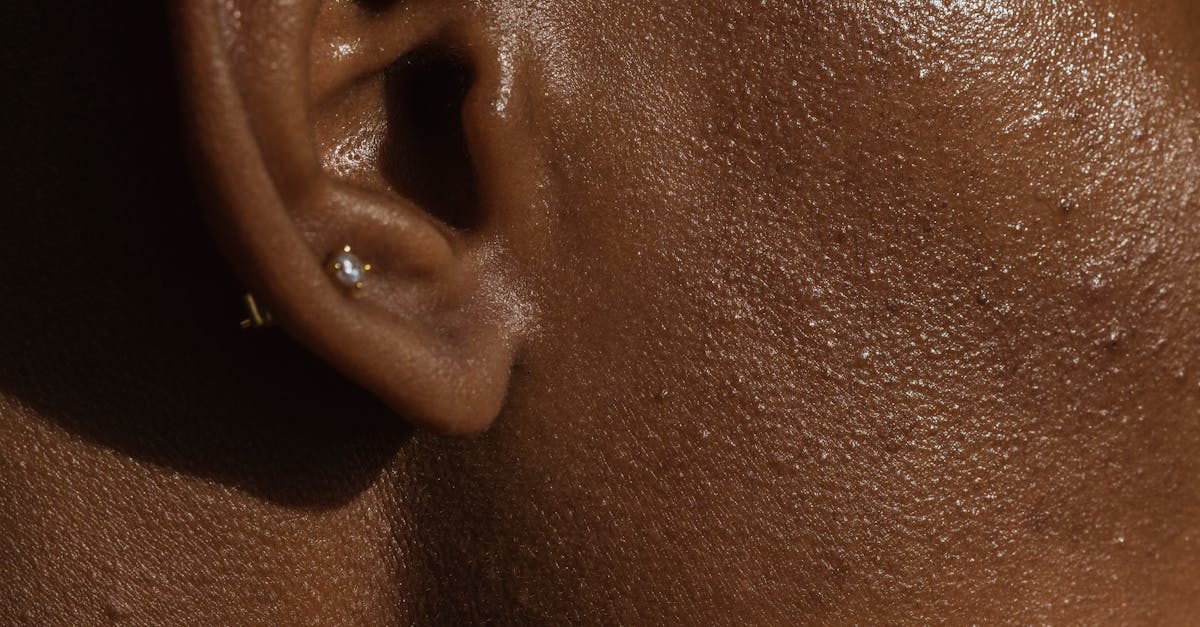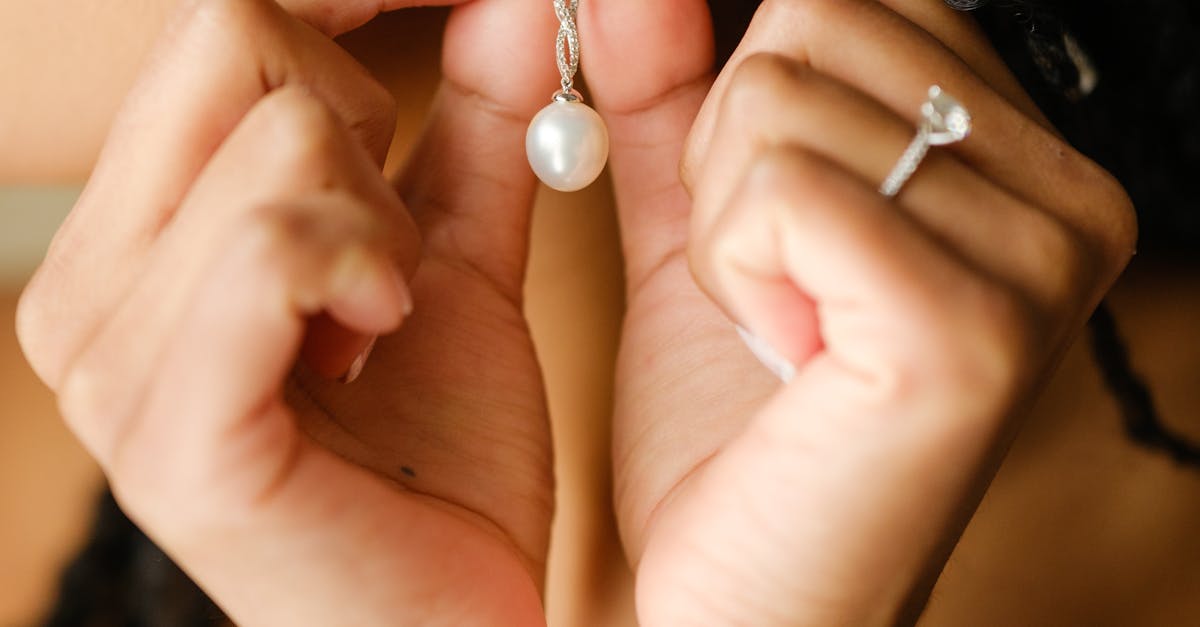
Table Of Contents
Dietary Guidelines for Optimal Healing after Ear Surgery
After undergoing ear surgery, it is essential to follow dietary guidelines to aid in optimal healing. Consuming a well-balanced diet rich in nutrients is crucial for the body to recover efficiently. Focus on incorporating plenty of fruits, vegetables, whole grains, lean proteins, and healthy fats into your meals. These foods provide essential vitamins and minerals that support the healing process post Ear Surgery. Additionally, staying hydrated by drinking an adequate amount of water is key for promoting optimal recovery.
In contrast, it is advisable to limit the intake of processed foods, sugary snacks, and beverages high in caffeine or alcohol. These items can potentially hinder the healing process and may lead to inflammation, which can delay the recovery of the ear following surgery. By being mindful of your dietary choices and opting for nutritious options, you can contribute to the overall success of your healing journey after Ear Surgery.
Foods to Eat and Avoid during Recovery
After undergoing ear surgery, it is essential to pay close attention to your dietary choices to support the healing process. Opt for foods rich in vitamins and minerals that can aid in tissue repair and reduce inflammation. Include plenty of fruits and vegetables in your meals to ensure you are getting a good dose of antioxidants, which can help combat free radicals and promote healing. Additionally, foods high in protein, such as lean meats, eggs, and legumes, can be beneficial for rebuilding tissues and speeding up recovery.
During the recovery period following ear surgery, it is advisable to avoid foods that may hinder the healing process or cause inflammation. Stay away from processed foods high in sodium and sugar, as they can contribute to swelling and slow down recovery. It is also recommended to limit your intake of saturated fats and opt for healthier fats found in sources like avocados, nuts, and seeds. By being mindful of your food choices and selecting items that support healing, you can aid your body in recovering efficiently from Ear Surgery.
Rehabilitation Exercises for Ear Surgery Recovery
Rehabilitation exercises play a crucial role in the recovery process after ear surgery. These exercises are designed to help improve flexibility, strength, and balance in the ear region, facilitating a speedier recovery. Patients are encouraged to start with gentle movements and progress gradually to more challenging exercises to avoid strain or injury. Physical therapists may recommend specific exercises tailored to the individual's needs and the type of ear surgery they underwent.
Engaging in rehabilitation exercises after ear surgery can help promote blood circulation, reduce inflammation, and prevent stiffness in the ear area. By incorporating these exercises into their daily routine, patients can enhance their overall recovery experience and potentially minimize discomfort. It is important for individuals to follow the guidance of their healthcare provider or physical therapist regarding the frequency and intensity of these exercises to ensure a safe and effective rehabilitation journey post Ear Surgery.
Recommended Physical Therapy Techniques
After ear surgery, physical therapy can significantly aid in the healing process and help regain optimal function. Physical therapy techniques may include gentle stretching exercises to improve flexibility and range of motion in the ear and surrounding muscles. Therapists may also incorporate massage techniques to reduce swelling and improve blood flow to the area. Additionally, specific strengthening exercises targeting the muscles that support the ear can help enhance stability and reduce the risk of complications post-surgery.
Furthermore, physical therapy techniques for ear surgery recovery may involve balance and coordination exercises to enhance proprioception and improve overall equilibrium. These exercises can be tailored to individual needs and may progress in intensity as healing progresses. Working with a skilled therapist to develop a personalized physical therapy plan can promote a faster and more efficient recovery after ear surgery, ultimately leading to better long-term outcomes.
Tips for Faster Recovery and Scar Minimization
After undergoing ear surgery, it is essential to follow some tips to aid in a quicker recovery and minimize scarring. Be sure to carefully follow the post-operative instructions provided by your healthcare provider to promote optimal healing. Avoid any activities that could put strain on the newly operated ear and wear any prescribed protective gear, like headbands or bandages, to shield it from external factors that could impair the healing process.
Maintain good hygiene around the ear surgery site to prevent infections that could delay healing and worsen scarring. Keep the area clean and dry, following the guidelines given by your surgeon. Additionally, regular check-ups with your healthcare provider can help monitor the progress of your recovery and address any concerns promptly to ensure a smooth healing process after ear surgery.
Strategies to Promote Healing and Reduce Scarring
To promote healing and reduce scarring after ear surgery, it is crucial to follow the post-operative care instructions provided by your healthcare provider diligently. Keeping the surgical area clean and dry is essential in preventing infections that can interfere with the healing process. Regularly changing dressings as advised by your healthcare team and avoiding exposure to moisture can help minimize the risk of complications and promote optimal healing of the surgical site.
Another strategy to promote healing and reduce scarring after ear surgery is to adhere to the prescribed medication schedule. Pain management and antibiotics, if prescribed, should be taken as directed to help control discomfort and prevent infections. Additionally, attending follow-up appointments with your healthcare provider is essential for monitoring the healing progress and addressing any concerns promptly. By following these strategies, you can facilitate a smooth recovery process and promote optimal outcomes following ear surgery.
FAQS
How long does it take for the ear to heal after surgery?
The healing time for ear surgery varies depending on the type of procedure performed. In general, it can take anywhere from a few weeks to a few months for the ear to fully heal.
What factors can affect the healing time after ear surgery?
Several factors can influence the healing process after ear surgery, including the individual's overall health, the complexity of the procedure, adherence to post-operative care instructions, and any complications that may arise during recovery.
Are there any dietary guidelines to follow for optimal healing after ear surgery?
Yes, maintaining a healthy and balanced diet can help promote healing after ear surgery. It is recommended to consume foods rich in vitamins, minerals, and protein to support the body's recovery process.
Can rehabilitation exercises help with recovery after ear surgery?
Yes, rehabilitation exercises and physical therapy techniques can aid in improving range of motion, strength, and flexibility in the affected ear. These exercises should be performed under the guidance of a healthcare professional.
How can I minimize scarring and promote faster healing after ear surgery?
To minimize scarring and promote faster healing after ear surgery, it is important to follow proper wound care instructions, avoid smoking, protect the ear from sun exposure, and stay hydrated. Additionally, consulting with your healthcare provider for personalized recommendations can also be beneficial.


